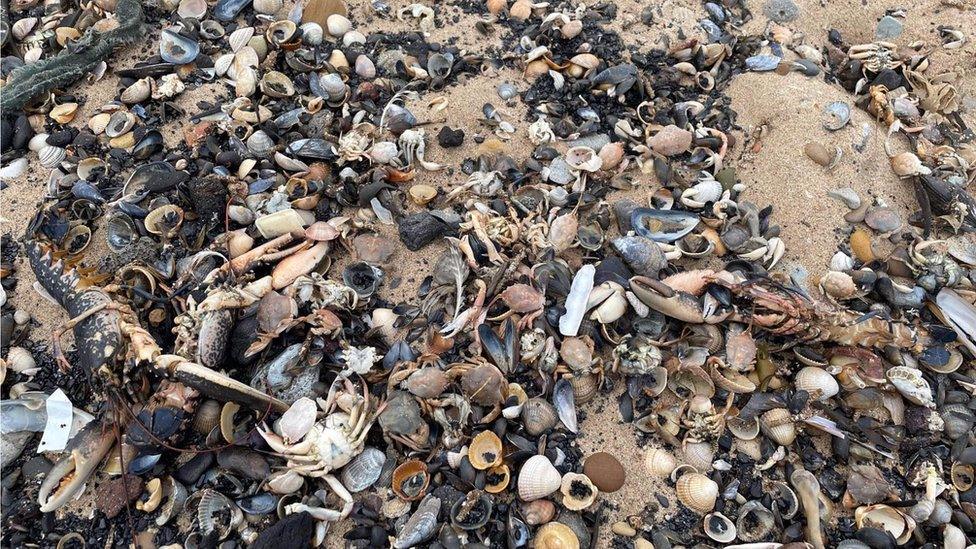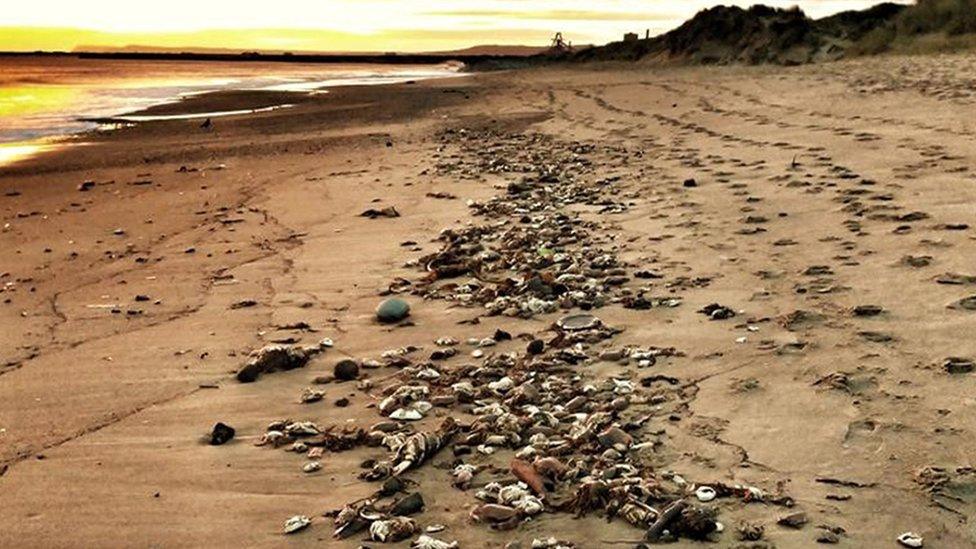Shellfish deaths: Minister rejects call for further probe
- Published

The mass die-off on 40 miles (70km) of coastline saw shellfish washed ashore between October and December 2021
The government will not carry out further investigations into what killed thousands of shellfish off the North East and North Yorkshire coast.
Since late-2021, thousands of marine life, including crabs, have washed up between Hartlepool and Whitby.
The Environment, Food and Rural Affairs Select Committee wrote to Environment Secretary Therese Coffey asking for an urgent study into the mass die-off.
But Ms Coffey has replied that finding the cause was "highly unlikely", external.
An expert panel's report previously concluded "a novel pathogen was the most likely" cause of the deaths.
The chairman of the select committee, Scarborough and Whitby Conservative MP Sir Robert Goodwill, wanted a new study to provide "as definitive an explanation as possible" and for various government bodies to monitor the area and carry out "thorough sampling and testing for chemical pollutants such as pyridine".
But Ms Coffey reiterated the expert panel's report and said: "Given the extent of the analytical work already undertaken, and further advice, I have decided that it is highly unlikely that we will find the cause.
"No further analysis will be undertaken by the government."

The government previously said it "may never find the cause" behind the deaths of thousands of shellfish off the North East and North Yorkshire coast
The environment secretary said there were already "sampling and testing protocols - both routine and for emergencies" in place.
She said the Environment Agency was the "first responder" and said she had asked the Centre for Environment, Fisheries and Aquaculture Science (Cefas) to be "engaged promptly" if a similar event occurred again.
But Ms Coffey said there was "no question of the government providing any compensation or specific support", as an existing range of help for the seafood industry was already available.
She also rejected concerns about the economic impact of the die-offs, saying stock monitoring suggested the catch in late 2021 was "broadly" normal and no "significant reduction in landings" had been observed.
"This does not preclude the possibility that some highly localised fishing grounds suffered significant mortalities," she said.
Stock monitoring had found lobster landings in the 2022 season were "in line with seasonal expectations", she added.

Follow BBC North East & Cumbria on Twitter, external, Facebook, external and Instagram, external. Send your story ideas to northeastandcumbria@bbc.co.uk, external.
- Published1 February 2023

- Published26 January 2023

- Published20 January 2023

- Published16 January 2023
